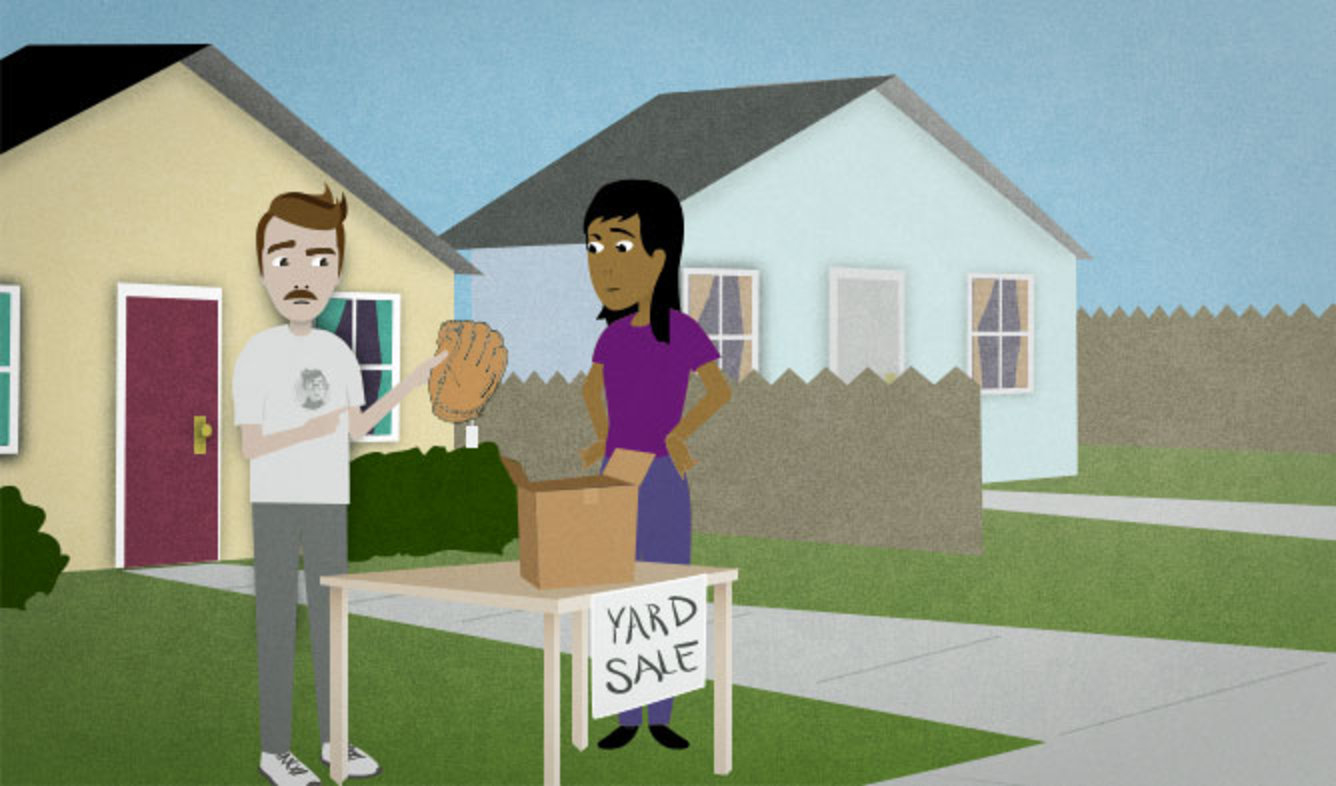“Hey, come on! That has sentimental value to me!”
You and your family are having a yard sale to get rid of old stuff. Your wife suggests that you sell an old baseball mitt, but you don't want to sell it because it's the one you used as a kid.
Hey, come on! That has sentimental value to me!
Want Video and Sound? Follow us on YouTube

come on
You say "come on" to someone when you're trying to convince them in a friendly and casual situation. "Come on" means something like "Don't worry about it; just do it." Here is another example:
Come on! Tell me what she said!
Come on, stay for one more round.
You can also say "Come on!" when a person does something that you don't like, and you want them to stop. For example, if you and your partner were teasing each other, and he gets angry at you, you can say:
Come on! I was only joking.
Hey
You say "Hey" at the beginning of a sentence in casual English when you want to get someone's attention. For example:
Hey, Hitomi, can you hand me that box over there?
It's common to say "Hey" before you ask someone a question, or when someone has done something that's wrong or unfair:
Use "hey" with people you know or are familiar with. When you're talking to people you don't know as well, "Excuse me" is more polite.
(something) has sentimental value to (someone)
An object that you associate a lot of memories and emotions to "has sentimental value". Some things that might have sentimental value include:
- jewelry that you inherited from someone in your family
- old photographs
- an award that you won as a child
When an object has sentimental value, you want to keep it safe.
